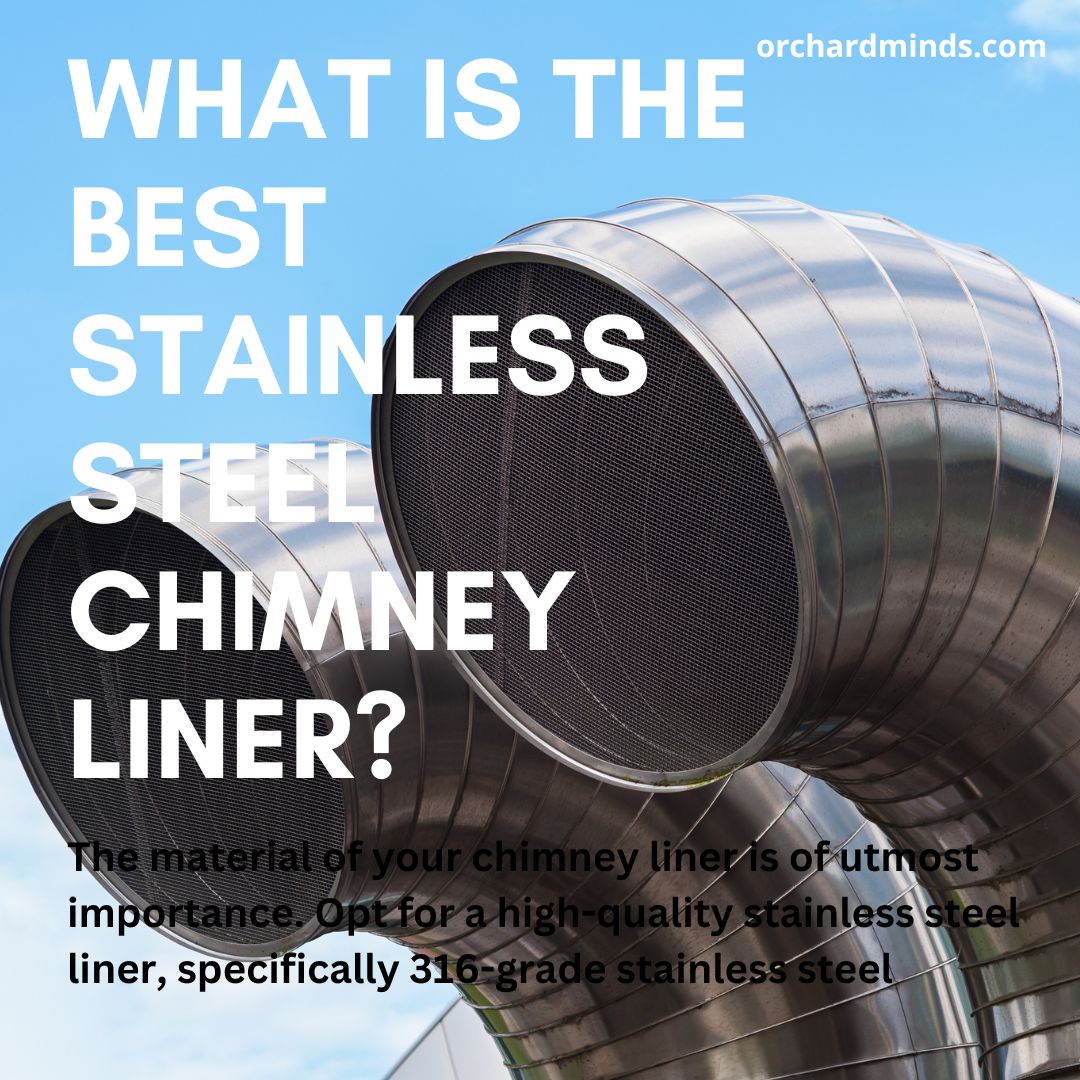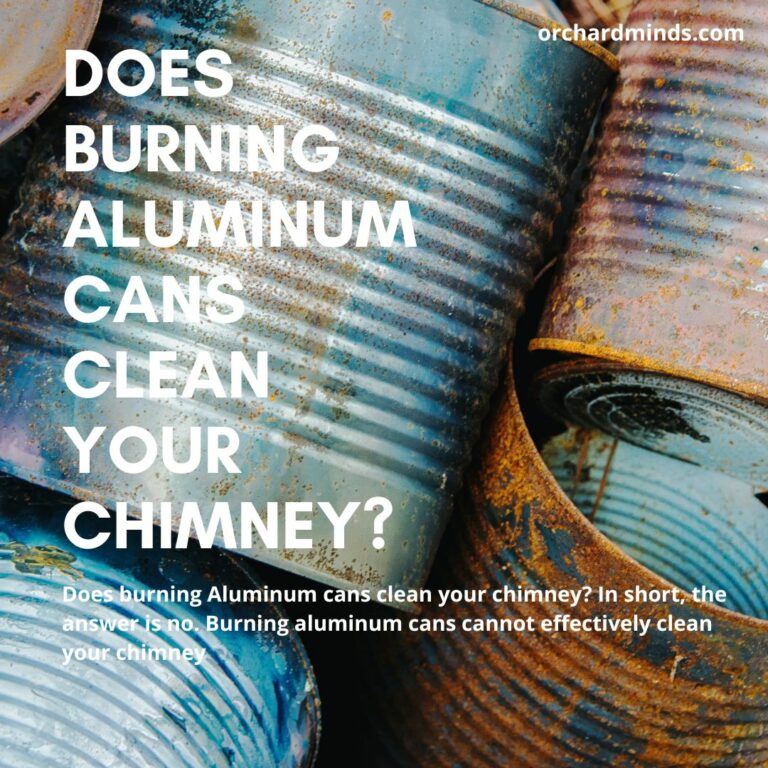Determining the best stainless steel chimney liner is critical for anyone looking to maintain a safe and efficient fireplace or heating appliance. Your chimney liner is pivotal in directing harmful gases out of your home while preventing chimney fires. However, the market is saturated with various options, each claiming to be the best. This guide will cut through the noise and provide a comprehensive overview of what makes a chimney liner the best choice. By examining factors such as material quality, thickness, insulation, and compatibility with your heating system, we’ll help you pinpoint the ideal stainless steel chimney liner to ensure the safety and functionality of your chimney.
Material Matters
The material of your chimney liner is of utmost importance. Opt for a high-quality stainless steel liner, specifically 316-grade stainless steel. This type of stainless steel is renowned for its exceptional resistance to corrosion, which is crucial considering the harsh and corrosive environment inside a chimney. Choosing 316-grade stainless steel ensures that your liner will maintain its integrity and durability, even in regions with severe weather conditions or exposure to corrosive elements. It’s a long-lasting investment in your chimney’s safety and performance.
Liner Size and Thickness
The size and thickness of your chimney liner play a critical role in its performance and safety. Start by ensuring that the liner’s diameter matches the size of your chimney flue. An appropriately sized liner ensures efficient venting and prevents potential issues caused by an improperly fitted liner.
Additionally, consider the liner’s thickness, typically measured in gauge. The standard thickness for stainless steel chimney liners is 24 gauge, which is suitable for most applications. However, if you live in an area with particularly harsh climates or seek added durability, you may opt for a thicker 22-gauge liner. The thicker gauge provides extra strength and longevity, making it a robust choice for challenging conditions.
Insulation Quality
Insulation is a crucial feature of a chimney liner, contributing significantly to its performance and safety. High-quality insulation helps maintain the optimal temperature inside the flue, preventing condensation and promoting an efficient draft. When evaluating chimney liners, consider those with top-notch insulation properties.
Insulated stainless steel chimney liners typically feature a layer of insulation material surrounding the stainless steel. This insulation barrier prevents heat transfer to the chimney’s masonry, reducing the risk of creosote buildup and protecting against potential chimney fires. Choosing a liner with high-quality insulation is a wise investment in the safety and efficiency of your chimney system.
Flexibility vs. Rigid
Stainless steel chimney liners come in two primary configurations: flexible and rigid. Flexible liners offer versatility in installation, making them well-suited for chimneys with bends, offsets, or irregularities. They can easily navigate the twists and turns of your chimney’s structure. On the other hand, rigid liners are a suitable choice for straight, vertical chimneys with a more straightforward design. When deciding between the two, carefully assess your chimney’s specific design and requirements to choose the liner type that best fits your needs.
Code Compliance and Certification
Ensuring your selected stainless steel chimney liner complies with local building codes and regulations is paramount. Look for products that have undergone rigorous testing and certification by reputable organizations such as Underwriters Laboratories (UL) or the Chimney Safety Institute of America (CSIA). Compliance with these standards assures the liner meets essential safety and performance criteria, providing peace of mind and confidence in your chimney system’s reliability.
Professional Installation
Proper installation is paramount regardless of the quality and suitability of the chimney liner you choose. It’s strongly advised to enlist the services of a certified chimney professional for the installation process. These professionals possess the knowledge and expertise to assess your chimney’s needs accurately, select the appropriate liner, and ensure it is installed correctly and safely. Professional installation safeguards your investment and guarantees that your chimney system functions efficiently and poses no safety risks.
What factors should be considered when making the best choice for a stainless steel chimney liner?
The material is a fundamental consideration when selecting the ideal stainless steel chimney liner for your home. Opt for a high-quality 316-grade stainless steel liner, known for its exceptional corrosion resistance, ensuring durability in harsh chimney environments. Additionally, assess the liner’s size, matching it to your chimney flue diameter, and contemplate its thickness, with 24-gauge being the standard but thicker 22-gauge liners suitable for harsh climates. Insulation quality is equally critical, as it helps maintain an ideal flue temperature, prevents condensation, and promotes efficient draft. Prioritize chimney liners with superior insulation properties to safeguard your chimney’s performance and safety. By considering these factors, and you can confidently select the best stainless steel chimney liner tailored to your home’s specific needs.
FAQs about the best stainless steel chimney liner
What is the purpose of a chimney liner?
A chimney liner serves multiple purposes, including enhancing safety by preventing heat transfer to combustibles, improving chimney performance by promoting proper draft, and extending the chimney’s lifespan by protecting its structure from corrosive byproducts.
Why should I choose a stainless steel chimney liner?
Stainless steel chimney liners are preferred for their durability and resistance to corrosion. They are suitable for various heating appliances and offer long-lasting performance, making them popular among homeowners.
What is the significance of insulation in a chimney liner?
Insulation in a chimney liner is essential for maintaining the optimal flue temperature. It helps prevent condensation, reduces creosote buildup, and ensures an efficient draft. Insulated liners are particularly valuable in cold climates.
How do I determine the correct chimney liner size for my chimney?
To determine the correct liner size, measure the inner dimensions of your chimney flue. The liner’s diameter should match the flue size. It’s crucial to have an appropriately sized liner to ensure efficient venting and safety.
Can I install a chimney liner or hire a professional?
While some homeowners may have the skills to install a chimney linerhttps://orchardminds.com/how-to-obtain-chimney-certification/, hiring a certified chimney professional is generally recommended. They can assess your specific needs, select the right liner, and ensure proper installation, which is crucial for safety and performance.
Are there regulations and certifications for chimney liners?
Yes, there are regulations and certifications for chimney liners. Choosing a liner that complies with local building codes and regulations is essential. Look for products tested and certified for safety and performance by reputable organizations such as Underwriters Laboratories (UL) or the Chimney Safety Institute of America (CSIA).
How often should a chimney liner be inspected and maintained?
Chimney liners should be inspected and maintained regularly. An annual chimney inspection by a certified professional is recommended to identify any issues or wear and tear. Maintenance may include cleaning and ensuring the liner remains in good condition for safe operation.
Can a stainless steel chimney liner be used with any heating appliance?
Stainless steel chimney liners are versatile and suitable for various heating appliances, including wood stoves, gas fireplaces, oil furnaces, and more. However, it’s essential to consult the manufacturer’s guidelines for your specific heating appliance to ensure compatibility and safety.




Leave a Comment